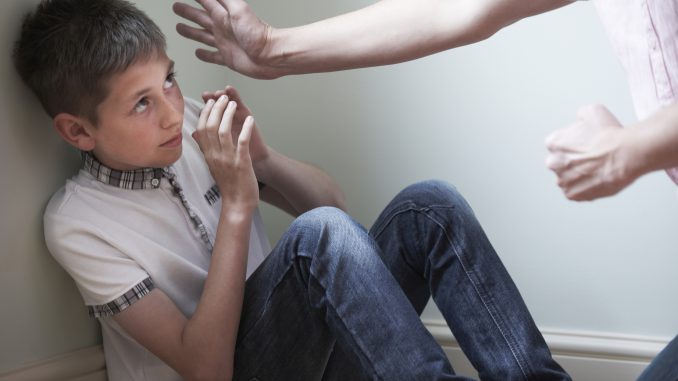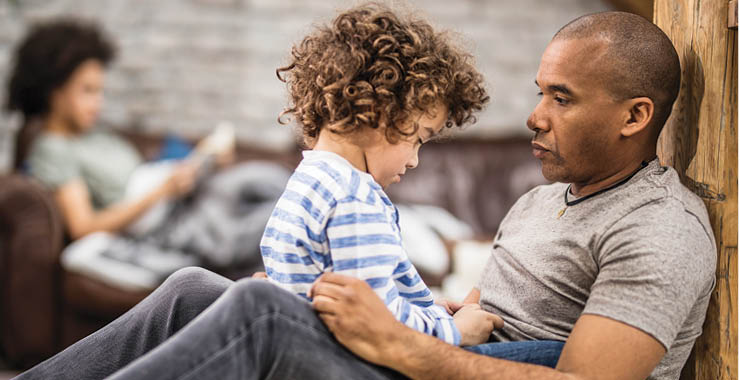
“Bad Impacts of Violence on Children” – Many parents still think that hitting or other physical punishment is the most appropriate method for disciplining children. UNICEF’s child welfare agency stated that hitting harms children’s psychology. What are the consequences of children being beaten often? Check out the following review.
8 Bad Impacts of Violence on Children
Hitting a child may immediately make him obey instantly. Therefore, some parents often apply this method when dealing with a fussy and misbehaving child.
In fact, behind that, there are several impacts that children are often beaten and scolded.
1. Child is traumatized
According to The American Academy of Pediatrics, trauma can occur due to children being spanked and scolded. This condition is called post-traumatic stress disorder (PTSD) in medical terms.
If you have PTSD, your child will experience some of the following symptoms:
- insomnia,
- irritable and explosive,
- decreased concentration,
- impaired memory,
- easily startled,
- often daydreaming, and
- always feel suspicious and afraid.
2. Children find it difficult to socialize
Another effect of the trauma experienced by children due to frequent beatings is that it becomes difficult to communicate and socialize.
It is because he is always afraid of other people. In addition, he became insecure and difficult to achieve and develop his potential.
The U.S. The Department of Health and Human Service stated that hitting and yelling at children was considered physical and verbal abuse, a violation of children’s rights.
3. Having a brain development disorder
Parents may think that the toddler age does not understand the situation, so it is easy to hit the child. In fact, at this age, the brain develops faster than other organs.
Therefore, the impact of hitting children under five and older children is directly related to their intelligence.
It has been proven by some studies, one of which was published in the journal Infant and Child Development.
This study compared children aged three years who often received beatings (slaps) with children who did not.
The results showed that at the age of 5 years, children who it frequently spanked had lower intelligence than those who were not spanked.
4. They make it difficult for children to learn.
In toddlers, decreased brain performance can also occur due to hitting school-age children. As a result, it becomes difficult for him to understand the lesson.
According to a study published in the journal Human Brain Mapping, hitting a child can reduce grey matter, the grey connective tissue in the brain that is an essential part of learning.
In addition, due to frequent beatings and scolding, children find it challenging to develop themselves. He is afraid to try new things and is worried about making mistakes.
5. Children behave rudely
You must have heard that children’s behaviour reflects their parents’ behaviour. Yes, the same goes for violence.
The consequences of children being beaten and scolded will be seen directly in the child’s attitude. He will grow up to be a violent and aggressive child.
Children will think that hitting is typical, so he does the same thing to other people, such as friends or siblings.
In addition, launching the Healthy Children website, the effects of hitting a 2-year-old child and other forms of violence can make his tantrum.
Some children may also experience a lack of appetite, difficulty sleeping, and headaches.
6. Children are at risk of hurting themselves.
As explained earlier, hitting a child can make him imitate violence. Not only on other people, but he could also vent his emotions on himself.
According to the world health agency, WHO, a child’s frequent beatings can lead to self-injury, drug use, and even suicide attempts.
7. The child ran away from home.
Children may be able to escape if they experience violence outside the home. So, what if he experienced it at home?
Yes, with the attitude of parents who often beat their children, it will make them afraid and uncomfortable living in their own house.
As a result, children try to run away from home for fear of meeting their parents. Home should be comfortable, and parents should be a source of love when all that is lost in his life, the child’s soul will be empty and lack passion.
8. At the risk of promiscuity
As previously explained, a child’s frequent beatings can cause him to feel uncomfortable staying at home.
At puberty, he risks engaging in promiscuity because he seeks escapism outside the home.
According to WHO, this condition can cause children to have sex early, get pregnant outside the plan, experience sexually transmitted diseases and other reproductive problems.
You certainly don’t want this to happen to your child as a parent.
Tips for disciplining children without hitting

Based on the explanation above, of course, you will know that the consequences of children being beaten and scolded are very bad for children’s lives. Therefore, do not let you do it to them.
Instead of hitting and scolding your child, try the following things to teach your child to be obedient.
- Apply reasonable, valuable and age-appropriate punishments, such as cleaning the bathroom, writing apologies, etc.
- Build good communication with the child to be closer and easily follow your words.
- Make mutually agreed rules so that he feels responsible without hitting the child.
In addition, you need to pay attention to always maintaining emotions and holding back anger when dealing with children. As much as possible, be patient with his behaviour and forgive his mistakes, especially if the errors are not too serious.



